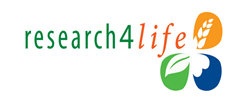Digitalization of Accounting: Implementation Features and Efficiency Assessment
DOI:
https://doi.org/10.15330/jpnu.10.2.45-58Keywords:
accounting, digitalization of accounting, software solutions efficiencyAbstract
The digitalization of accounting processes offers significant benefits, including increased efficiency and reduced errors in accounting data. However, the successful implementation of new and modernization of existing computer programs in the accounting system requires consideration of cost, technical, professional, and managerial factors. This study aims to provide a comprehensive analysis of qualitative and quantitative parameters that can form the basis for making decisions on the integration of automated accounting data processing, robotic process automation, artificial intelligence, blockchain, or their combinations into existing systems for the full digitalization of accounting.
The integration of software robots and artificial intelligence into accounting systems offers various benefits related to the creation of a non-standard environment where the generation, transfer, and exchange of traditional accounting information is accelerated and improved through the integration of data from other management systems and databases. These improvements contribute to the efficiency and reliability of the automated accounting system. The introduction of software components such as robotic process automation and artificial intelligence helps to free accounting staff from the routine of repetitive operations and ensures automatic prioritization and sequencing of accounting registration in the digital space. Integration of bots into an automated accounting system also facilitates document sharing and provides remote automated monitoring. This increases interaction between departments and improves control over operations that require additional attention from managers.
To assess the effectiveness of such software solutions, the authors critically evaluate existing approaches to determining the qualitative indicators that are expected to be obtained after the introduction of software innovations and propose to supplement the performance criteria with quantitative indicators, among which are the time-saving ratio in document processing, the error rate and the resource-saving ratio.
In conclusion, this study substantiates the need to consider quantitative parameters and coefficients that can be used to assess the effectiveness of implementing software solutions in automated accounting systems for the digitalization of financial information. The results emphasize the need for a holistic approach to assessing the effectiveness, reliability, and security of these solutions. Improved technical knowledge and training of accounting professionals in security assessment are crucial for the successful implementation and use of digitalization of accounting systems.










